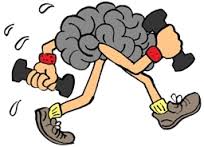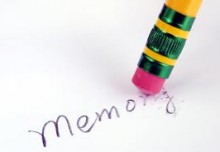 Pick your metaphor. If you want your knife to slice easier, you sharpen it. If you want to improve your time in a race, your train harder. If you want to improve your golf drive, you practice. What all three of these have in common is that if you invest a bit of time in a thing, you will have a better outcome.
Pick your metaphor. If you want your knife to slice easier, you sharpen it. If you want to improve your time in a race, your train harder. If you want to improve your golf drive, you practice. What all three of these have in common is that if you invest a bit of time in a thing, you will have a better outcome.
If you go to the Chicago Children’s Museum website they offer a clear mantra, not just for kids, but for all of us: “When we play, we learn. We create. We strengthen and grow. Chicago Children’s Museum’s mission is to improve children’s lives by creating a community where play and learning connect.” The museum may not be open during this pandemic, but the mission still applies. Research published in the New England Journal of Medicine has demonstrated a clear link between physical and mental activities and reducing the risk of dementias. And other scientists have replicated these findings that playing – both physically and mentally – is a great way to stay mentally sharp. I recommend any or all of the four V’s as ways to defend against dementia:
- Visualization – the classics here are chess and checkers, but there are countless card games that can qualify as well. Linking what you see in your hand or on the board with planning for your next move keeps your brain sharp.
- Verbalization – yes, it is about conversation, but up your game by being creative. When my kids were very young, we would ask at dinner about what they had learned at school or the best thing that happened…story telling.
- Virtualization – board games have come a long way since checkers and chess. They often offer challenges to find or accumulate or decipher something. They even have a new one in the current age called Pandemic: check it out.
- Visitation – even with the rollout of vaccines, we may be slow to get back to “normal,” but computers and cell phones give us visual and audio contact with the world. Check into what others are doing, and share your stories too.
And you can tie some of these together. We have played some games with our adult children on Zoom, and yes, they are still amazed that we can beat them on occasion. I have an associate who is committed to putting stories to the photos in his album, and he has some really great stories to share. The brain also benefits from a good workout. We may not be able to go to gyms without putting ourselves at risk, but walking, running, even workouts with zoom masters can be not just a tension reliever, but also a brain enhancer.
Charlotte Bishop is a Caregiver Coach, an Aging Life Care Advisor, a Geriatric Care Manager and founder of Creative Care Management, certified professionals who are geriatric advocates, resources, counselors and friends to older adults and their families in metropolitan Chicago. She also is the co-author of How Do I Know You? A Caregiver’s Lifesaver for Dealing with Dementia.





